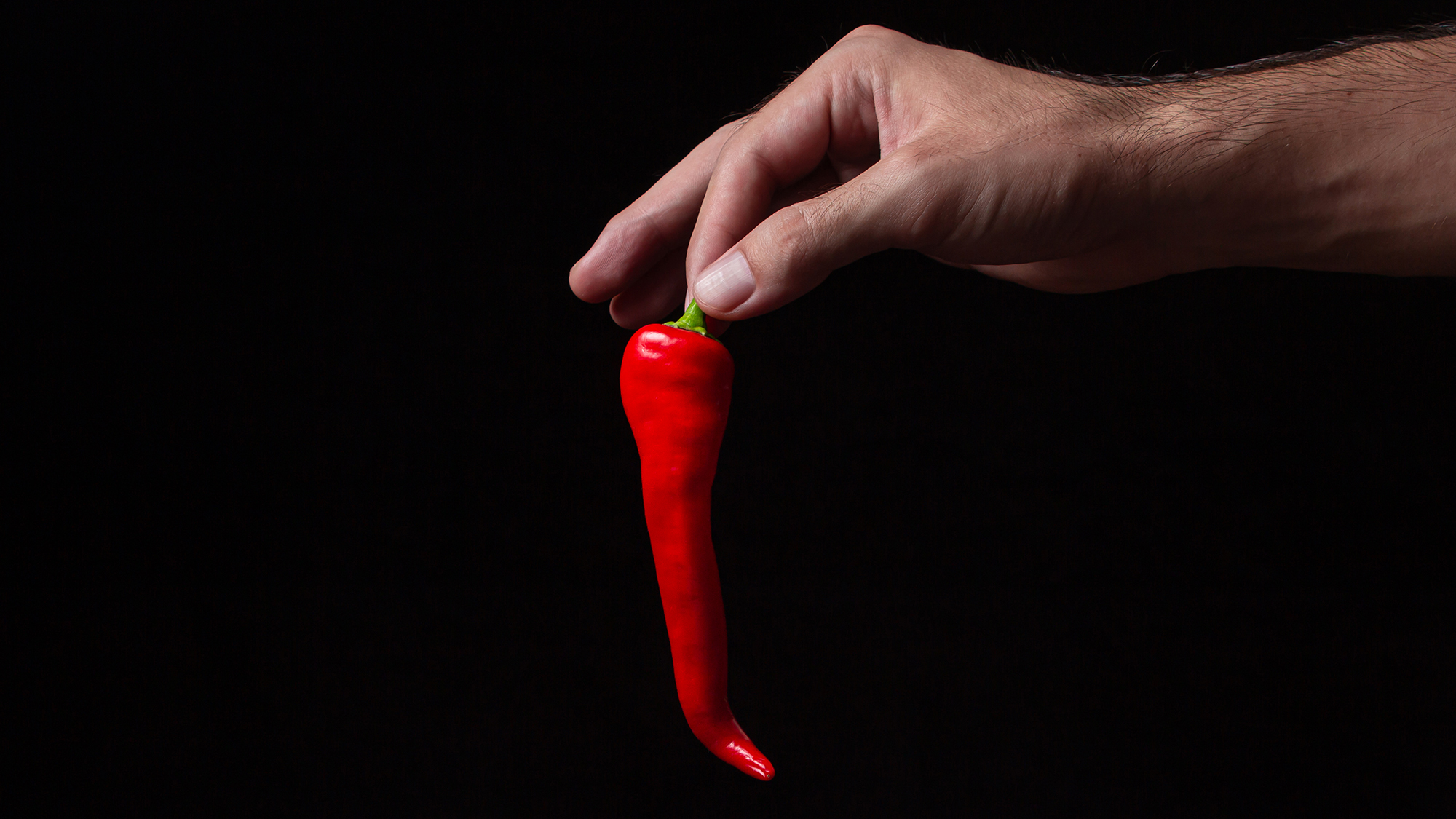

Our expectations can greatly influence the way we experience the world. The best-known examples of this are placebo and nocebo effects–where we expect that a treatment will or won’t work, respectively. These effects can have a dramatic impact on the treatment’s effectiveness.
However, there are many other ways that our expectations can determine our experiences. For example, the expectations we have about what food will taste like—and whether we’re going to like that taste—go a long way toward determining how much we will enjoy eating it.
[Related: Scientists reexamine dopamine’s role in the placebo effect]
A new study, published October 8 in PLoS Biology, examines just that. The study focused on the experience of eating spicy food, and examined two distinct ways in which expectations influence that experience: the “sensory component” (i.e. how spicy participants found the food to be) and the “hedonic component” (i.e. how much they enjoyed the spiciness.)
As co-author Yi Luo explains to Popular Science, as well as allowing researchers to isolate the individual effects of the two components, the study also made it possible to look at how the two interact: “[Being] able to separate the sensory component (expectation of spiciness intensity) from the hedonic component (expectation of enjoyment) of expectations regarding spicy sauce … allowed us to examine how these two aspects interact and affect subjective experiences and neural responses.”
The study’s results suggest that there are fundamental differences in how–and where–the brain responds to positive and negative expectations. Naively, one might expect that in both cases, the response would be confined to the part of the brain that deals with taste, but the actual situation is far more complicated. If expectations are positive, very different parts of the brain are activated than if expectations are negative.
“This is a really important point,” emphasizes Kenneth Kishida, Luo’s colleague and one of the paper’s co-authors. “When participants [are] expecting something positive, their brain appears to go into a state where it can integrate and incorporate information … By contrast, when [participants] expect a negative experience, their brains appear to go into a protective state [that] really focuses on processing how painful the stimulation is (and not much else)”.
The integrative state involves higher-level brain functions, reflecting the fact that, as Kishida explains, “the integrative state would be more conducive to learning, growing and maybe exploring—[which] would be really helpful for … expanding beliefs and attitudes about the events that eventually unfold.” The negative reaction, by contrast, occurs at a lower level, where instinct and reactivity play a more important role than cognition. “The lower-level nociceptive and affective states [are] more reactive,” says Kishida, “and perhaps faster at reflexively executing previously learned defensive behaviors.”
The reasons for these profound differences remain the subject of active research. Luo speculates that they may be the result of deep-seated evolutionary adaptations: “Positive expectations may promote exploration and reward-seeking, while negative expectations may prime defensive/avoidance responses.” However, he cautions, “more research is needed to fully understand the reasons for these differences.”
There’s also the question of exactly how the two components interact. Does the hedonic component of expectation alter the information sent as the sensory component, or just how the brain interprets that information? Does the expectation that you’ll like the taste of something actually change what your senses tell the brain about that taste, or does the brain simply interpret that information differently in someone who likes that taste and someone who doesn’t?
Luo says that on the evidence of this research, the answer is the latter: “The sensory input remained constant—the capsaicin in the hot sauce activated the same receptors regardless of expectation—but the participants’ expectations altered their subjective experience of that input. This suggests that expectations modulate the brain’s response to sensory input rather than altering the peripheral sensory signal itself.”
Placebo and nocebo effects are the subject of much ongoing research, for the simple reason that, as Kishida says, “The neurobiology of placebo and nocebo effects has been really challenging to investigate.” He says that this study, with its emphasis on how expectation manifests in the brain, “provides a novel approach to study the underlying mechanisms in a more generalized way.”
This could have utility well beyond the question of how we experience spicy food. Despite our tendency to refer to “the placebo effect” as a singular phenomenon, the better interpretation is that there is a family of such effects—all related to some extent, but each also different in its individual workings. Luo says that ultimately, the expectation-based phenomena examined in this study “could be analogous to a food-based placebo/nocebo effect.”
Elaborating on this point, Luo points out, “Our food-related expectation effects share some neurobiological mechanisms with placebo analgesia, such as involvement of the prefrontal cortex and anterior cingulate cortex. However, there are also differences—for example, our effects involve taste and reward processing regions. Overall, expectation effects likely rely on some common neural foundations while also engaging domain-specific processes.”
Our best understanding at this point is that all such effects share some sort of common neurological foundation. However, the extent of that common foundation, along with where it ends and the manifestations of individual placebo/nocebo effects begin, also remain open questions. Kishida says, “I suspect that at the core we are investigating very similar phenomena [to those researching medication-related placebo effects]. More work is needed to test that hypothesis, [and] this experiment was designed to begin to go down that road.”
